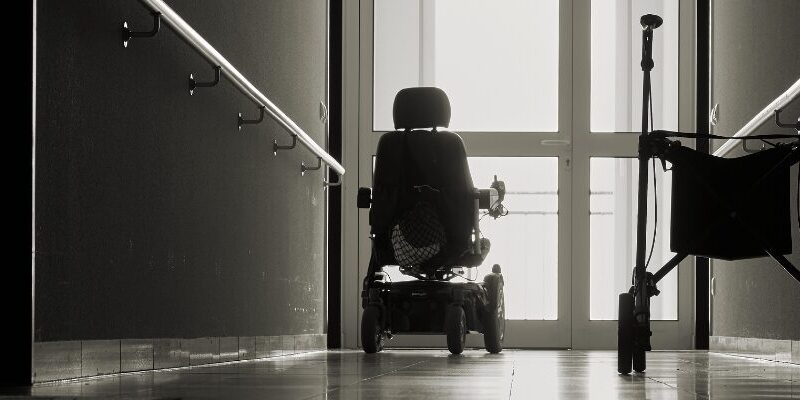
US Policymakers Recommend Nursing Home Reforms
The poor quality of care provided in nursing homes and long-term care facilities is a hot topic among US policymakers. During the first year of the COVID pandemic, nearly half of all deaths reported were among nursing home residents.
A long overdue comprehensive review of the nursing home system has been performed by a committee of the National Academies of Sciences, Engineering and Medicine, revealing alarming deficiencies and spurring recommendations for immediate, radical changes to the delivery, financing, regulation and monitoring of care. This review marks the first of its kind in over 35 years. In 1986, the Institute of Medicine released its landmark report Improving the Quality of Care in Nursing Homes which identified many issues within the system, including resident neglect and abuse, poor quality of life, high costs and insufficient regulatory involvement. Shockingly, the new 600-page report, The National Imperative to Improve Nursing Home Quality, states that many of the issues remain persistent today.
To improve the system, the committee developed the following goals:
- Deliver comprehensive, person-centered, equitable care that ensures the health, quality of life and safety of nursing home residents, promotes resident autonomy and manages risks.
- Ensure a well-prepared, empowered and appropriately compensated workforce.
- Increase transparency and accountability of finances, operations and ownership.
- Create a more rational and robust financing system.
- Design a more effective and responsive system of quality assurance.
- Expand and enhance quality measurement and continuous quality improvement.
- Adopt health information technology in all nursing homes.
Many experts believe these reforms cannot happen fast enough. It is estimated by the end of the decade 1 in 5 American adults will be over the age of 65, with the number of those over the age of 85 rising from 6.7 million to 9.1 million. The nursing home industry is currently faced with widespread staffing shortages, with a loss of 15 percent of its workforce between February 2020 and March 2022. To remedy this situation, the committee has recommended competitive wages for lower-income employees, better benefits, free certified nursing assistant training programs with continued education and opportunities for career advancement, shoring up minimal staffing standards and education requirements and the exploration of federal long-term care benefits.
Additional recommendations include the following:
Making resident rooms more home-like with one resident per bedroom/bathroom with immediate access to personal protective equipment;
- Mandatory 24/7 on-site, direct care registered nurses at all facilities;
- Mandatory, full-time social workers and infection control nurses/doctors to effectively meet facility needs;
- Listing of resident/family reviews on the Centers for Medicare and Medicaid Services (CMS) Care Compare website;
- Mandatory specialized geriatric training for all employees;
- Follow through of the federal government to ensure state agencies have the necessary resources to monitor facilities, investigate complaints and enforce rules; and
- Stop opaque financial, operation and ownership practices through publicly available audits.
Data gathered by the committee showed that for-profit nursing homes, which make up two-thirds of the industry, overall deliver a lower quality of care than their not-for-profit and government-owned counterparts. For-profit facilities are notorious for “cooking the books” to boost profits, often at the expense of the residents and employees. This is often accomplished through private equity investors and real estate investment trusts (REITs) which make nursing home ownership complex and allow owners to hide funds while claiming a narrow profit margin.
President Biden addressed this issue in his recent State of the Union Address: “Wall Street firms take over more nursing homes, quality of care in those homes has gone down and costs have gone up. That ends on my watch.” Although CMS requires the reporting of such ownership structures, investigators have found data to be largely incomplete, not audited for accuracy and difficult to analyze with little to no information of how taxpayer dollars in the form of Medicare and Medicaid reimbursements are spent. It is a widespread practice for owners to outsource goods and services to other companies they also own to inflate prices and siphon funds intended for the direct care of residents and employee training and benefits.
Some changes are already in the works. Earlier this year, CMS began publicly posting staff turnover rates and weekend staff levels on the Care Compare website, which will factor not facility star ratings as early as July 2022 and CMS is expected to propose new rules for minimal staffing requirements sometime next year. The White House has also announced a set of nursing home reforms to reduce room occupancy, increase funding for health and safety inspections, recruitment and retention of employees and crack down on “predatory owners and operations.” CMS will be responsible for collecting and publicly displaying detailed ownership and operating data and the US Department of Health and Human Services, among other agencies, will investigate the role of private equity and REITs throughout the industry.
How to Protect Your Loved One from Nursing Home Neglect and Abuse
You can protect your loved one from nursing home abuse in Missouri and Kansas by knowing the signs and where to report suspected occurrences. For more information, download Kendall Law Group’s What You Need to Know About Nursing Home Abuse & Neglect.
Do I Need a Kansas City Nursing Home Abuse Attorney?
In situations of nursing home abuse or neglect, as a loved one, it can be difficult to think clearly due to panic, anger and fear that cloud your judgment. Your priority should be stopping the neglect or abuse and ensuring that your loved one is safe. It can be difficult to know what steps to take so a consultation with a Missouri or Kansas nursing home abuse attorney can be extremely helpful. Nursing home abuse attorneys understand the laws related to abuse and neglect claims and the necessary steps to protect your loved one now and in the future.
Due to the opaque ownership practices of Missouri and Kansas nursing homes, you may have a legal claim against multiple parties. A nursing home abuse lawyer in Kansas City can help guide you through the process and seek compensation from all responsible parties.
Filing a claim against a long-term care facility serves the purpose of obtaining compensation for your injured family member to help pay for medical and moving expenses and to identify the responsible party to prevent future occurrences.
Kansas City Nursing Home Injury Trial Lawyers
Kendall Law Group LLC has been helping individuals and families put their lives back together after nursing home neglect and abuse in Missouri and Kansas for decades. If you or your loved one has not received the care they deserve, contact us today to speak with one of our skilled attorneys. We are conveniently located in the Crossroads area of Kansas City, Missouri and offer free phone and virtual consultations. Call us at (816) 531-3100 or contact us HERE.






